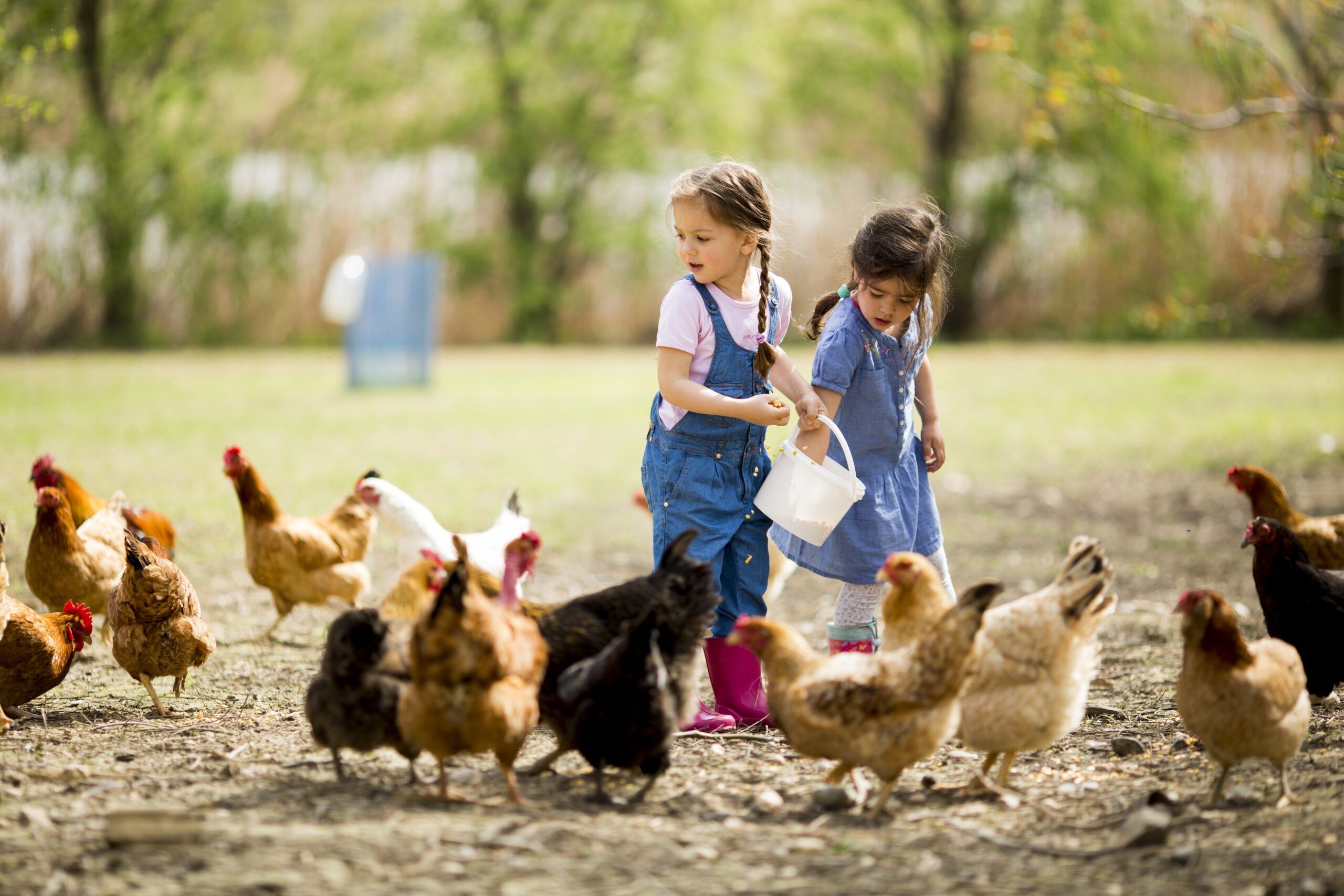There’s a quiet kind of magic that happens when children dig their hands into the earth. Whether it’s planting a seed, collecting eggs, or feeding animals, farming connects children to the rhythm of the natural world in a way few experiences can. It teaches them to slow down, to observe, and to take part in something bigger than themselves. At Acorn, we see farming not just as an activity, but as a living classroom—rich with lessons in care, patience, and connection.
The Power of Doing, Not Just Watching
Farming invites children to be active participants in their learning. They’re not just reading about how carrots grow—they’re planting them, watering them, waiting, and one day, pulling them from the soil with their own hands. These moments make learning real and lasting. Rooted in a Reggio-inspired approach, we believe children learn best when they’re doing—when they can touch, see, smell, and ask questions as they go. Farming naturally supports this kind of exploration, where every task, big or small, becomes an opportunity to discover.
Growing Responsibility, One Task at a Time
Whether it’s remembering to water seedlings or gently feeding animals, farming gives children a sense of responsibility. These daily routines build consistency and care—not through instruction, but through experience. Children quickly see that their actions matter. When they forget, a plant wilts or an animal wait. When they remember, something flourishes. These are early lessons in empathy and accountability, grounded in real-life outcomes they can feel and understand.
Farming as Emotional Grounding
Life on a farm move with the seasons. Some days are muddy, some sunny, some filled with waiting. And within that natural rhythm, children find emotional grounding. The quiet repetition of tending to the earth can be calming and centering. The unpredictability of weather or a missed harvest teaches resilience. There’s space for reflection and room for growth, not just for the plants and animals—but for the children themselves.
Connection to Food, Nature, and Each Other
Perhaps most powerfully, farming helps children build a meaningful relationship with where their food comes from. They begin to understand the effort, time, and care it takes to grow even the simplest things. Sharing that food with others—harvesting vegetables for a snack or helping prepare a small meal—becomes an act of pride and connection. These shared experiences help children feel part of a community. And in environments like Acorn, where relationships are at the heart of everything, this sense of belonging is what allows children to truly flourish.
More Than a Farm—A Foundation for Life
In the end, farming teaches children that growth takes time, care matters, and nature has its own gentle wisdom. With dirt on their hands and wonder in their eyes, they learn to be patient, to observe closely, and to celebrate the slow magic of small things growing. These are the kinds of lessons that stick.
Because when a child learns how to care for a seed, they’re also learning how to care for the world—and for themselves.

